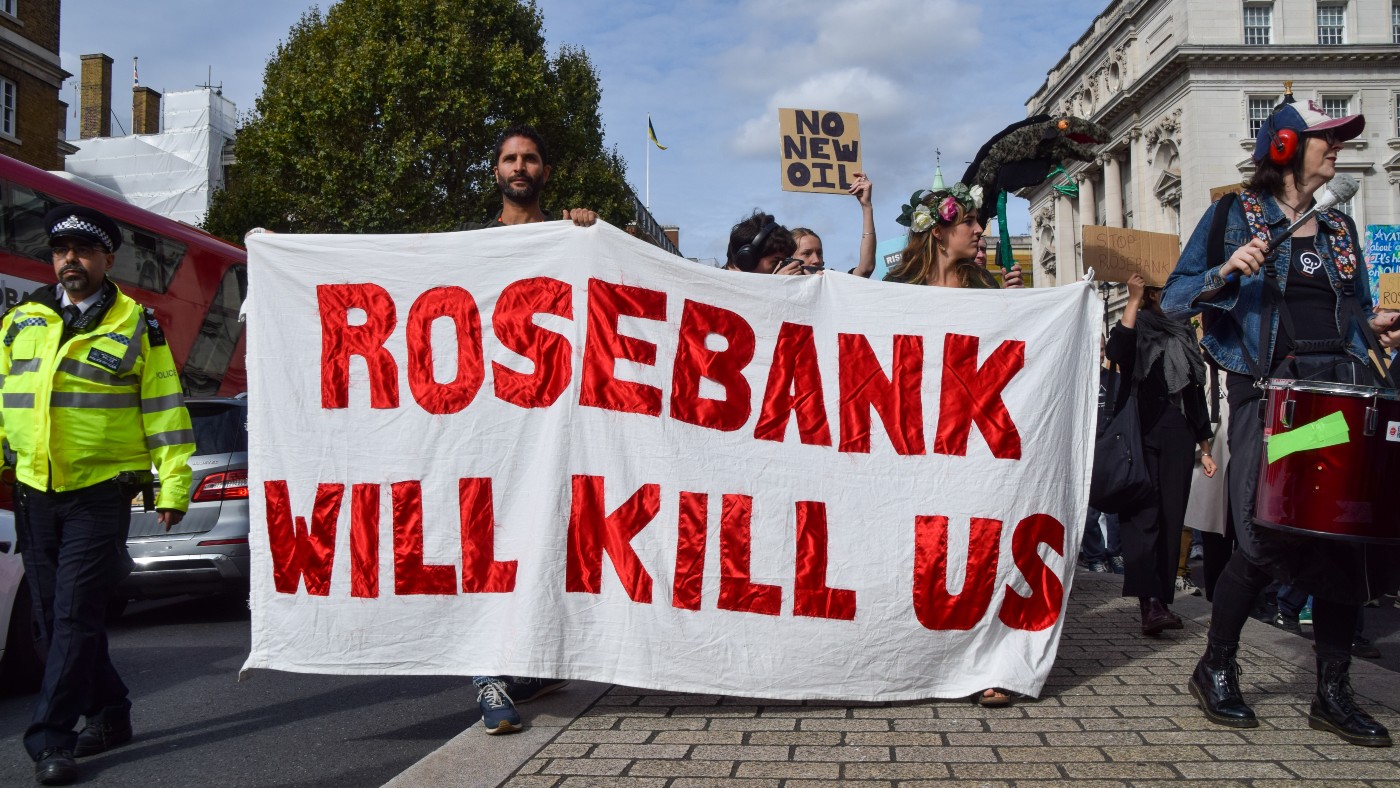Paris to ban all petrol and diesel cars by 2030
And Oxford aims to become world’s first ‘zero-emission zone’ by end of this decade

A free daily email with the biggest news stories of the day – and the best features from TheWeek.com
You are now subscribed
Your newsletter sign-up was successful
Paris is to ban all combustion-engine cars, including those fuelled by diesel and petrol, by 2030, city authorities announced today.
The move marks a “radical escalation” of a strategy to cut carbon emissions in one of the world’s most-visited city, says the London Evening Standard. Earlier this year, Paris Mayor Anne Hidalgo unveiled plans to take diesel cars off the French capital's roads within a decade.
The city already imposes temporary bans on vehicles, using an alternate odd-even number plate system, to deal with harmful surges in air pollution.
The Week
Escape your echo chamber. Get the facts behind the news, plus analysis from multiple perspectives.

Sign up for The Week's Free Newsletters
From our morning news briefing to a weekly Good News Newsletter, get the best of The Week delivered directly to your inbox.
From our morning news briefing to a weekly Good News Newsletter, get the best of The Week delivered directly to your inbox.
However, the drive to tackle emissions have not been without controversy. Paris City Hall is already under attack after imposing no-car zones, car-free days and fines for drivers who enter the capital in cars that are more than 20 years old.
Unveiling the latest plan, officials “avoided the word 'ban' and instead said it was introducing a feasible deadline by which combustion-engine cars would be phased out”, reports the Evening Standard.
The announcement came as Oxford revealed a similar scheme to ban all petrol and diesel vehicles, in a bid to become the world’s first zero-emission zone.
Under proposals put out for consultation next week, the city council plans to phase out petrol cars from 2020. This would involve first preventing non-zero-emitting taxis, cars, light commercial vehicles and buses from using certain streets in the city centre, before extending the scheme to ban all non-electrical vehicles, including HGVs, from the whole of the city centre by 2035.
A free daily email with the biggest news stories of the day – and the best features from TheWeek.com
Oxford was one of 11 urban areas in the UK and Ireland highlighted by the World Health Organisation last year as having dangerous amounts of nitrogen dioxide. The new scheme aims to cut levels of the harmful gas by as much as three-quarters by 2035.
According to The Guardian, the city has already won £500,000 of government funding to install charging points for electric taxis, and £800,000 to install 100 electric vehicle charging points for residents. Other schemes being considered, says the newspaper, “include reduced parking fees for electric vehicles, electric taxi-only ranks, and electric delivery vehicle-only loading areas”.
Councillor John Tanner, of Oxford City Council, told The Guardian that “a step change is urgently needed” to tackle the growing public health emergency, adding that “everyone needs to do their bit, from national government and local authorities, to businesses and residents”.
Last month the London mayor, Sadiq Khan, called for the Environment Department to amend the Clean Air Act to allow for the creation of zero-emission zones. According to new research, toxic air is blamed for an annual death toll of about 9,000 people in the capital alone.
In July, the government announced that new diesel and petrol cars and vans will be banned in the UK from 2040.
-
 Local elections 2026: where are they and who is expected to win?
Local elections 2026: where are they and who is expected to win?The Explainer Labour is braced for heavy losses and U-turn on postponing some council elections hasn’t helped the party’s prospects
-
 6 of the world’s most accessible destinations
6 of the world’s most accessible destinationsThe Week Recommends Experience all of Berlin, Singapore and Sydney
-
 How the FCC’s ‘equal time’ rule works
How the FCC’s ‘equal time’ rule worksIn the Spotlight The law is at the heart of the Colbert-CBS conflict
-
 Environment breakthroughs of 2025
Environment breakthroughs of 2025In Depth Progress was made this year on carbon dioxide tracking, food waste upcycling, sodium batteries, microplastic monitoring and green concrete
-
 The Southern Ocean is holding in a ‘burp’
The Southern Ocean is holding in a ‘burp’Under the radar The heat from the past can affect the future
-
 Builders return to the stone age
Builders return to the stone ageUnder the Radar With brick building becoming ‘increasingly unsustainable’, could a reversion to stone be the future?
-
 China vows first emissions cut, sidelining US
China vows first emissions cut, sidelining USSpeed Read The US, the world’s No. 2 emitter, did not attend the New York summit
-
 How carbon credits and offsets could help and hurt the climate
How carbon credits and offsets could help and hurt the climateThe explainer The credits could be allowing polluters to continue polluting
-
 Is Cop29 a 'waste of time'?
Is Cop29 a 'waste of time'?Today's Big Question World leaders stay away as spectre of Donald Trump haunts flagship UN climate summit
-
 Gold hydrogen: a near limitless supply of clean fuel?
Gold hydrogen: a near limitless supply of clean fuel?Under The Radar Huge deposits found in northern France but major energy companies are holding back, for now
-
 Rosebank oil field: pragmatism over future prospects?
Rosebank oil field: pragmatism over future prospects?Talking Point Green campaigners decry 'morally obscene' opening of new oil fields while trying to cut emissions